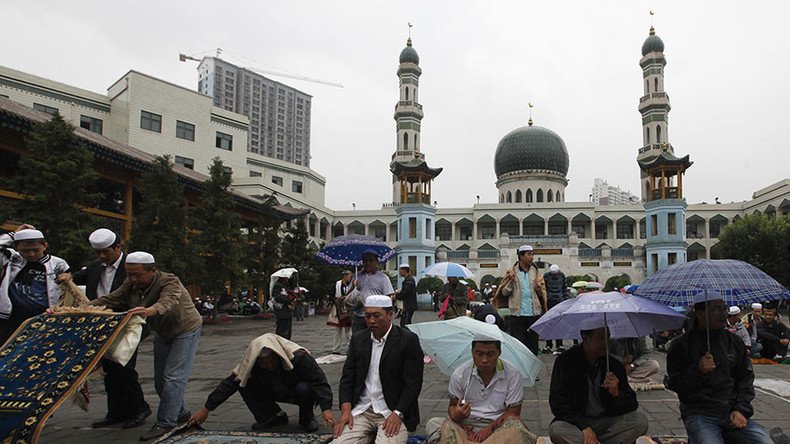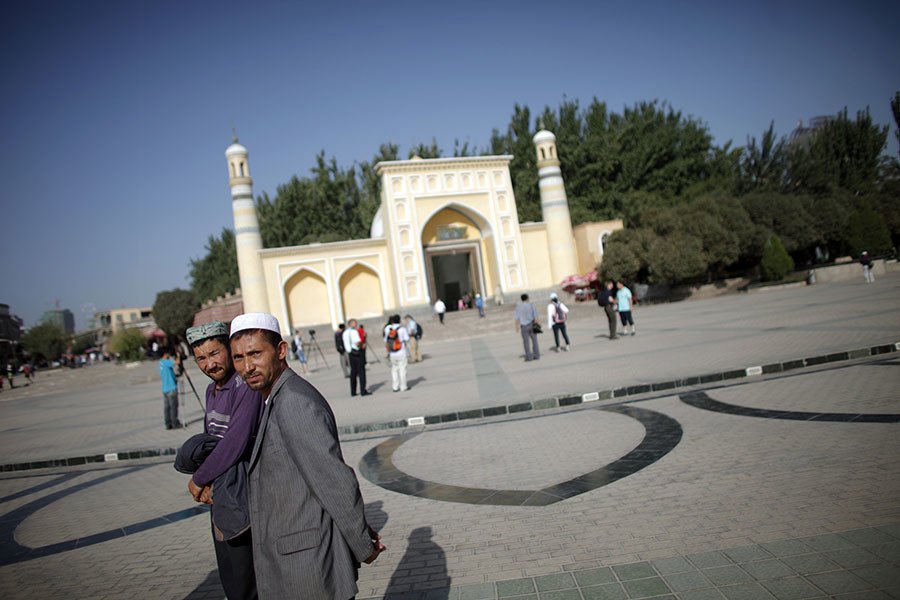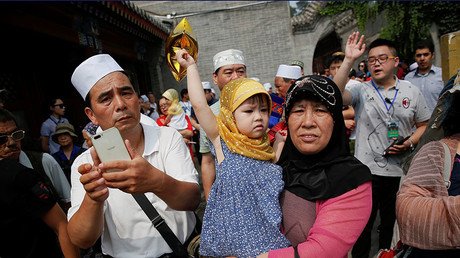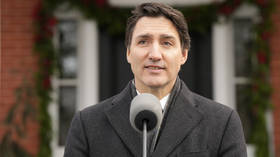Radical Islam spreading to inland China – senior official

China’s religion tsar has warned that foreign-inspired Islamism is expanding throughout China and threatening the “rule of law.” Beijing recently ordered residents of a Muslim-majority region to hand in their foreign passports.
Islam in China is often associated with the restive Xinjiang border region, which is home to over 10 million Muslim Uyghurs, but Wang Zuoan, head of the State Administration for Religious Affairs, told 300 religious leaders at the National Congress of the Chinese Islamic Association that “extremism” is now “moving to the inland provinces.”
Wang said that it was up to the clerics to become the “front line” in “resisting extremism” and “converting” Muslims to a more moderate form of the religion.
He urged Muslim communities learn “to use the law to safeguard legal interests, instead of trying to solve problems through illegal actions such as creating disturbances.”

China is strictly secular, and Wang also railed against the increasing adoption of religious practices in everyday life among the Islamic population, which stands at about 23 million – about the same as the number of Muslims living in the EU.
“We should respect the beliefs and customs of Muslims, and at the same time curb behaviors that intervene in administrative, judicial and education processes in the name of religious canons,” Wang said during Saturday’s speech, which was disseminated in the Chinese media on Monday.
“The China Islamic Association should stick to and carry forward the fine traditions of Chinese Islam, correctly identify the various ideological trends of Islam overseas and avoid blindly following the lead of religions in other countries, which will only result in the loss of direction for Chinese Islam,” he said.
Wang particularly attacked the “hyping up” of the ever-broadening use of the Islamic concept of halal, both in daily practices, and specifically in relation to food, and insisted that individual, unsupervised hajj pilgrimages to Mecca and Medina should be forbidden by the association.
“The country’s number of hajj pilgrims has already approached its limit, and there is not much room for more. We need to lead the Muslims to treat hajj more rationally, and object to irrational behaviors such as taking on debt to make the pilgrimage or making the pilgrimage in sickness,” said the official.
Beijing has long been at loggerheads with its Muslim minority in Xinjiang, where the Uyghurs' religion and ethnic identity have both contributed to a sense of alienation from the rest of China.
Beijing has accused religious leaders of fomenting unrest, which has resulted in hundreds of deaths during unsanctioned demonstrations that have turned violent. Terrorist attacks have also been carried out, such as last year’s assault on a mine by knife-wielding extremists that left over 50 dead.
The international World Uyghur Congress says their culture is being purposefully destroyed and claim Uyghurs are being denied their fundamental freedoms. In June, Xinjiang residents were told they must provide DNA samples if they want to travel abroad, a requirement not applicable to other regions, and, in October, police issued statements telling the population to hand in their travel documents for “safekeeping.”
While a less immediate threat, the danger of what Wang termed “pan-Islamism” is newer, and its scope is, as yet, unclear. Chinese authorities are fighting a constant battle against established religious movements and upstart cults, and Wang specifically told Islamic leaders to “manage the issue of Menhuan Sect Islam,” an increasingly popular offshoot of Sufism.














